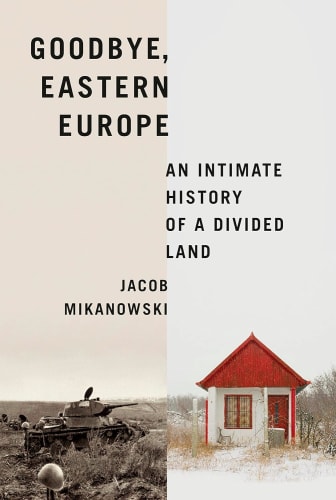
Goodbye, Eastern Europe
An Intimate History of a Divided Land
In light of Russia's aggressive 2022 invasion of Ukraine, Goodbye, Eastern Europe is a crucial, elucidative read, a sweeping epic chronicling a thousand years of strife, war, and bloodshed, from pre-Christianity to the fall of Communism—illuminating the remarkable cultural significance and richness of a place perpetually lost to the margins of history. "Eastern Europe" has gone out of fashion since the fall of the Soviet Union. Ask someone today, and they might tell you that Estonia is in the Baltics or Scandinavia, that Slovakia is in Central Europe, and that Croatia is in the eastern Adriatic or the Balkans. In fact, Eastern Europe is a place that barely exists at all, except in cultural memory. Yet it remains a powerful marker of identity for many, with a fragmented and wide-ranging history defined by texts, myths, and memories of centuries of hardship and suffering. Goodbye, Eastern Europe is a masterful narrative about a place that has survived being forgotten. Beginning with long-lost accounts of early pagan life, Mikanowski offers a kaleidoscopic tour of the various peoples who made Eastern Europe their home over the centuries, including the Roma, Jews, and Muslims; the great kingdoms of the medieval period; the rise and fall of the Ottoman, Habsburg, and Russian empires; the dawn of the modern era; the ravages of fascism and Communism; the birth of the modern nation-state and beyond. A student of literature, history, and the ghosts of his own family’s past, Mikanowski paints a magisterial portrait of a place united by diversity and eclecticism, and of people with the shared story of being the dominated rather than the dominating. The result is a loving and ebullient celebration of the distinctive and vibrant cultures that stubbornly persisted at the margins of Western Europe and Russia, and a powerful corrective that re-centers not only our understanding of how the modern Western world took shape but also the ways in which Eastern Europe has evolved throughout history to become what it is today.
Goodbye, Eastern Europe
An Intimate History of a Divided Land
